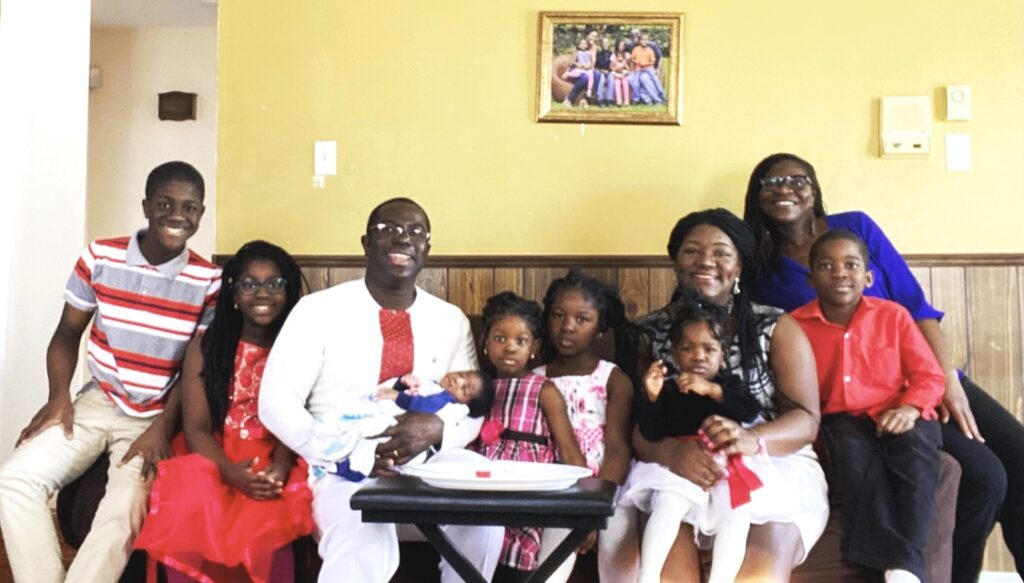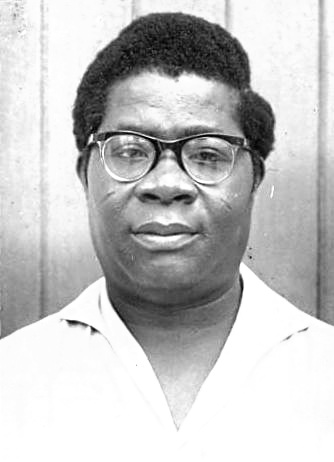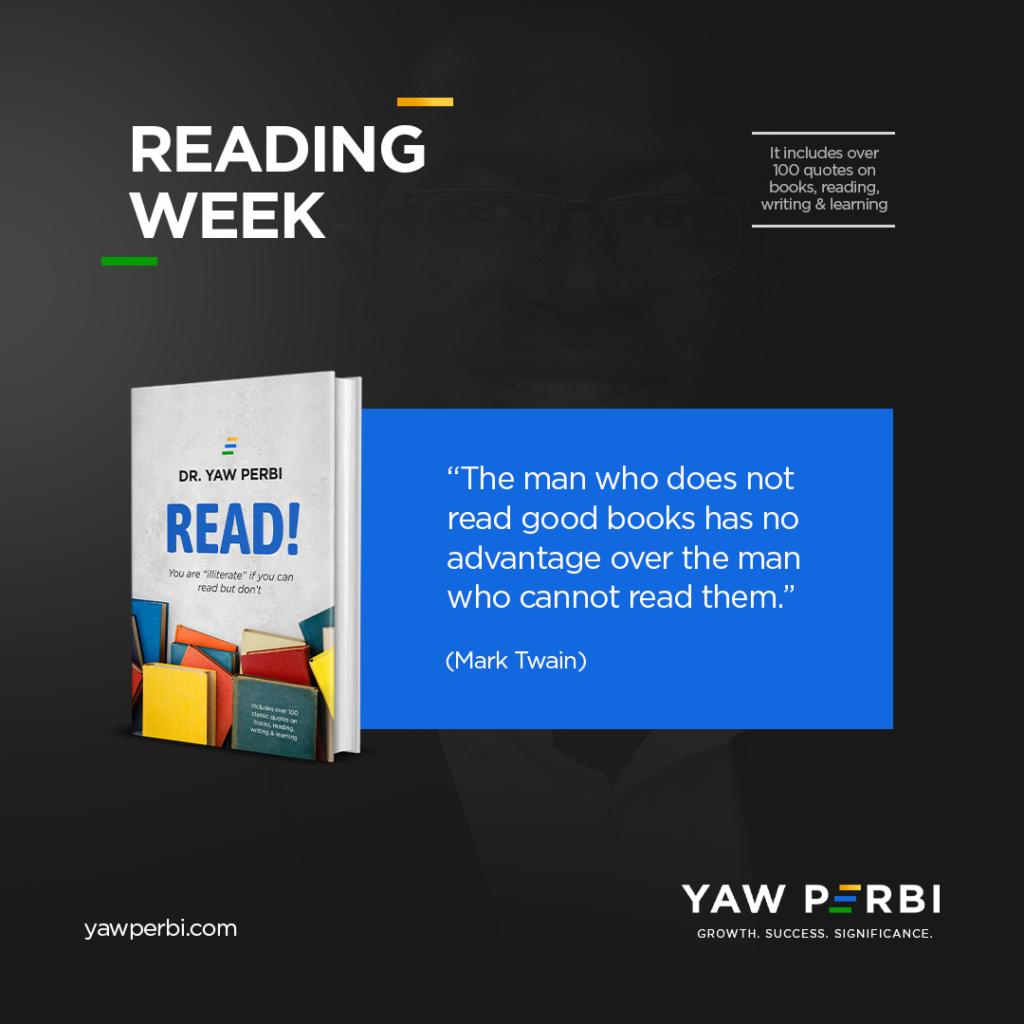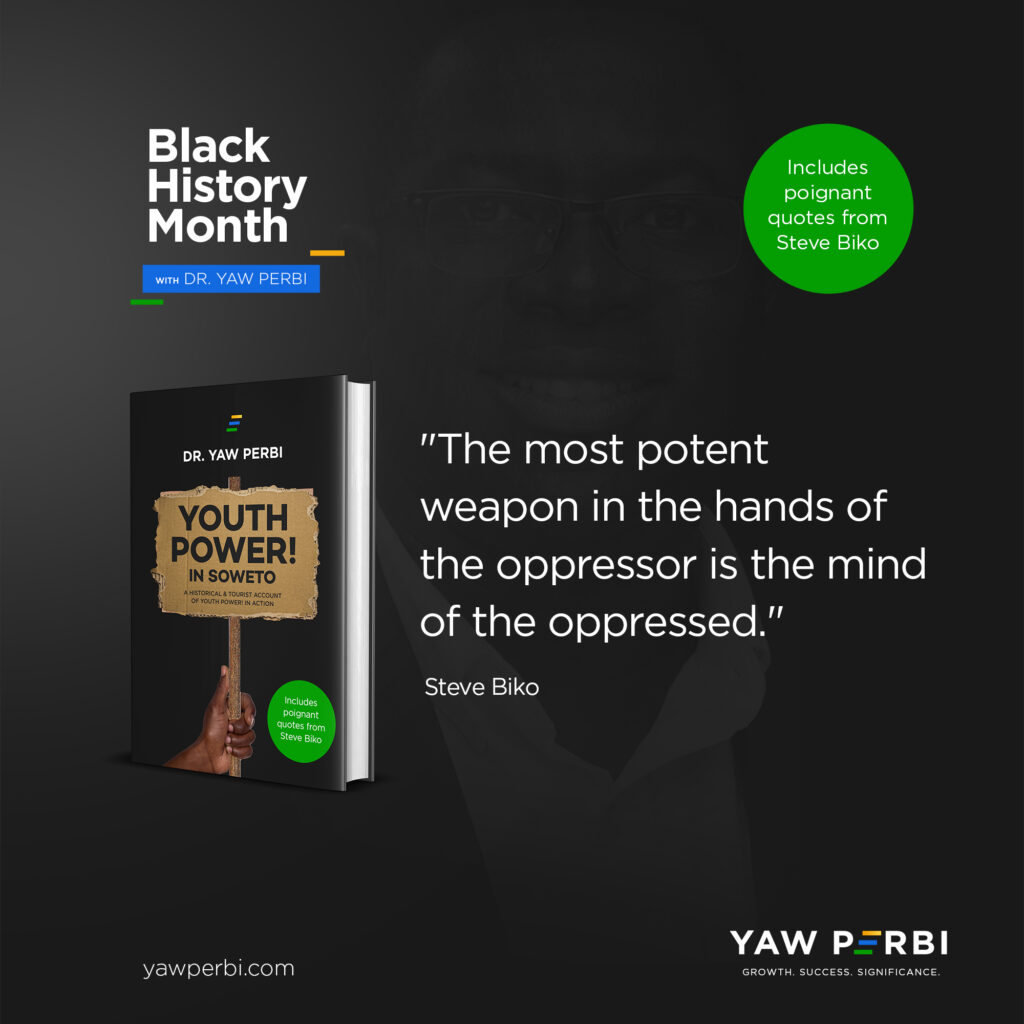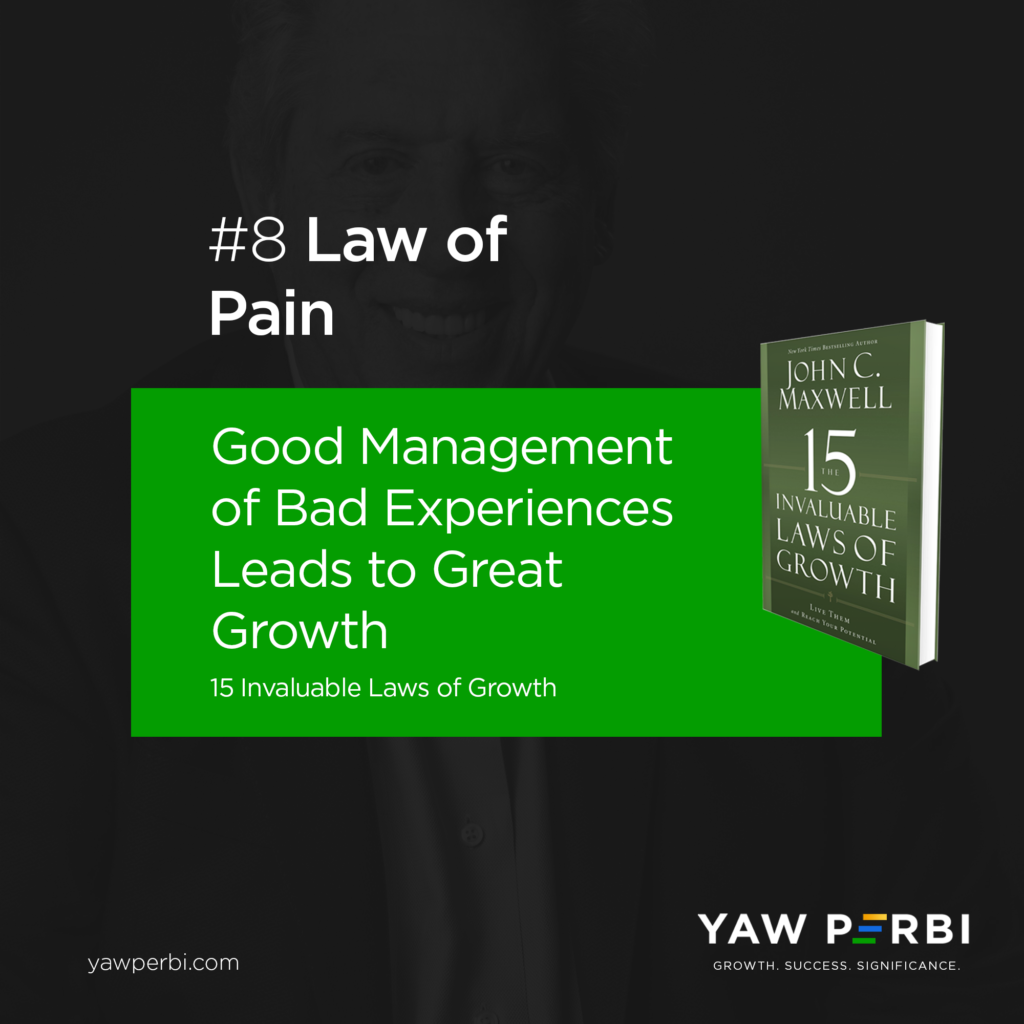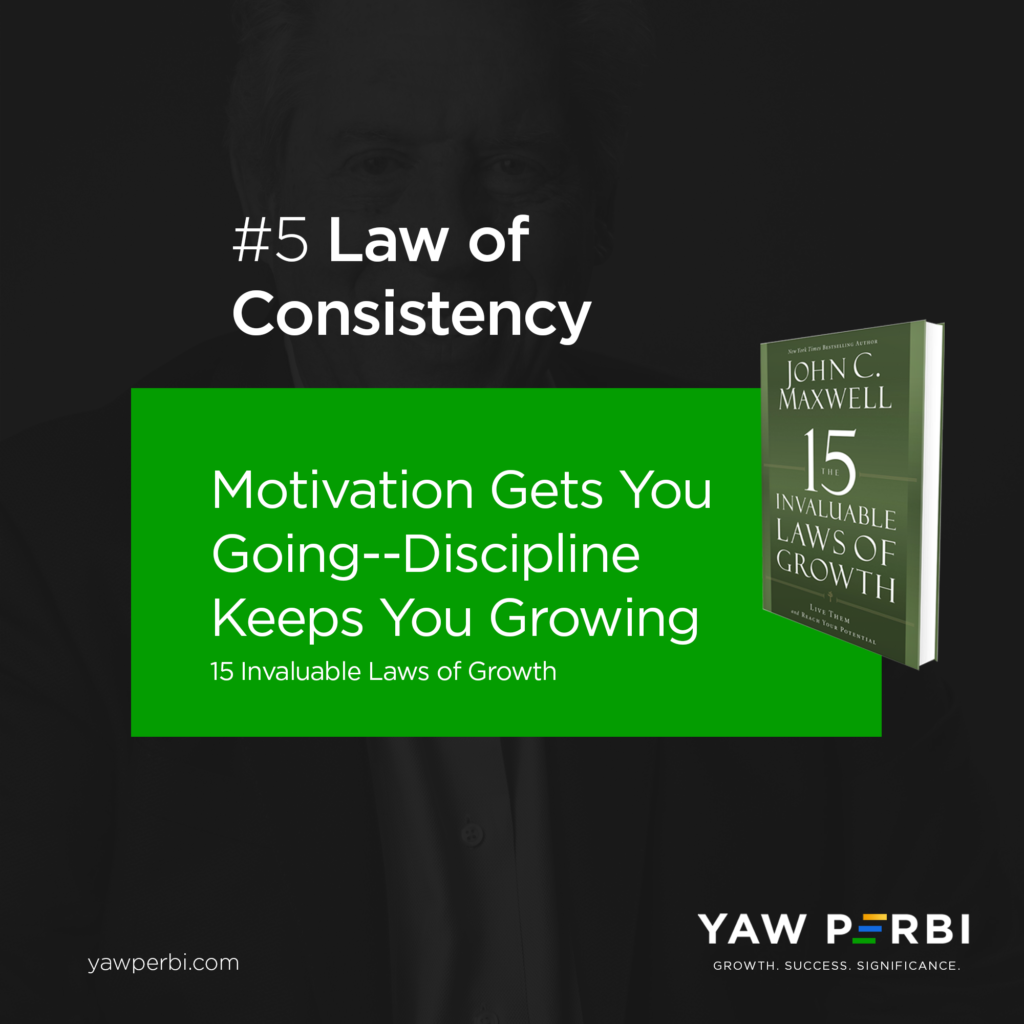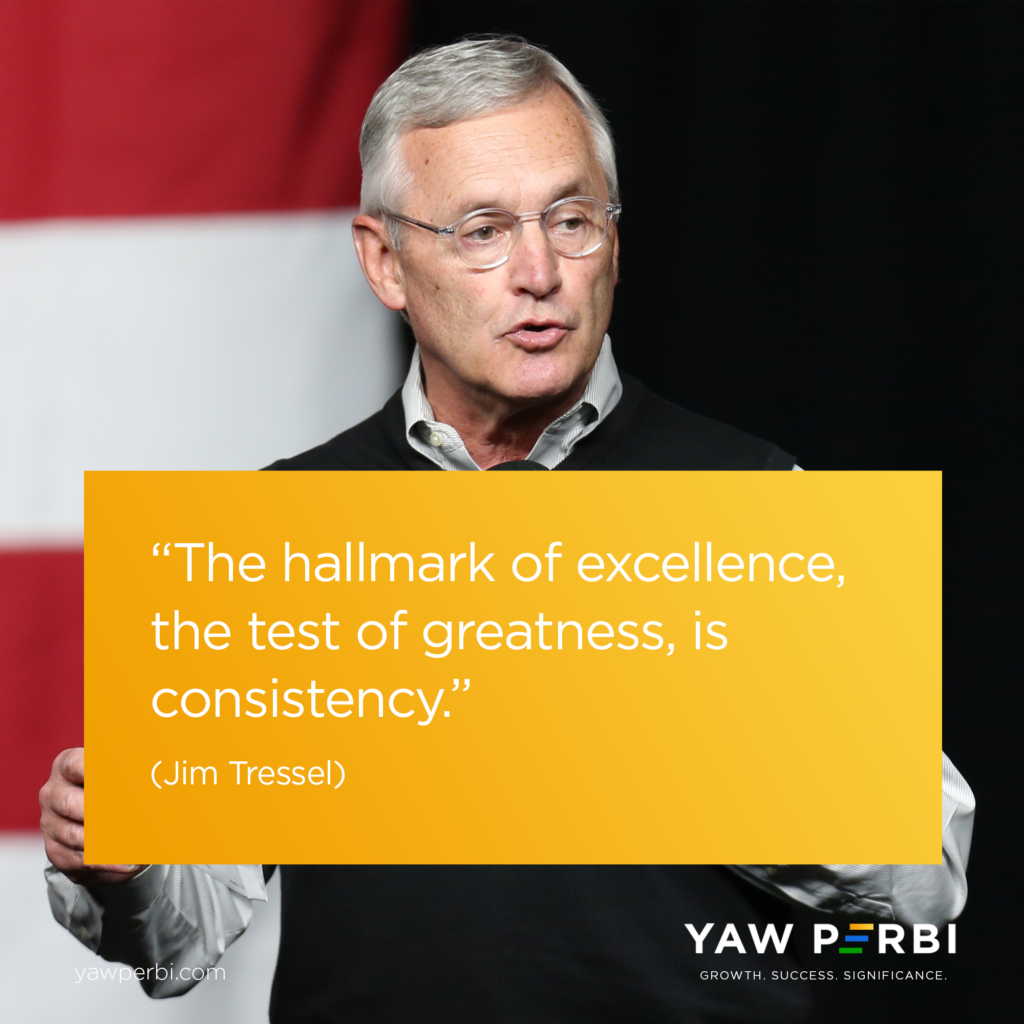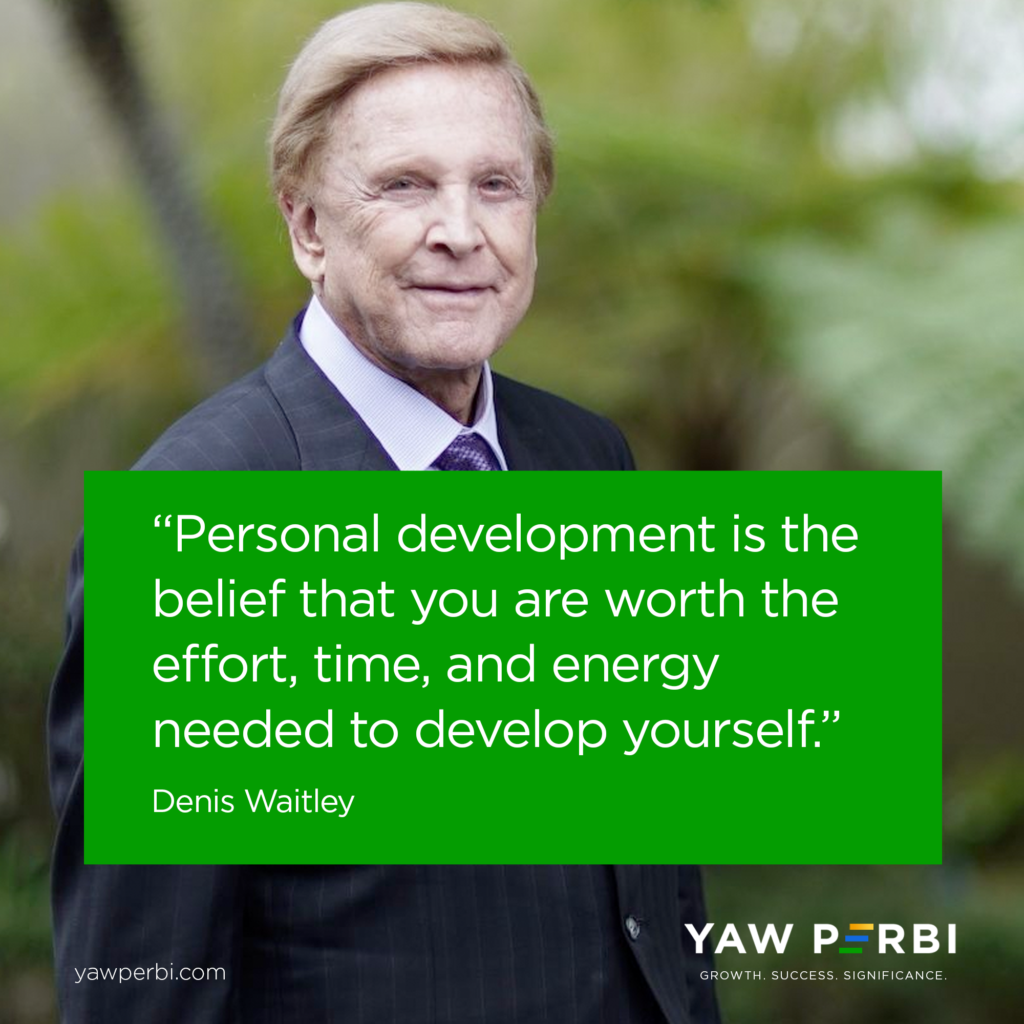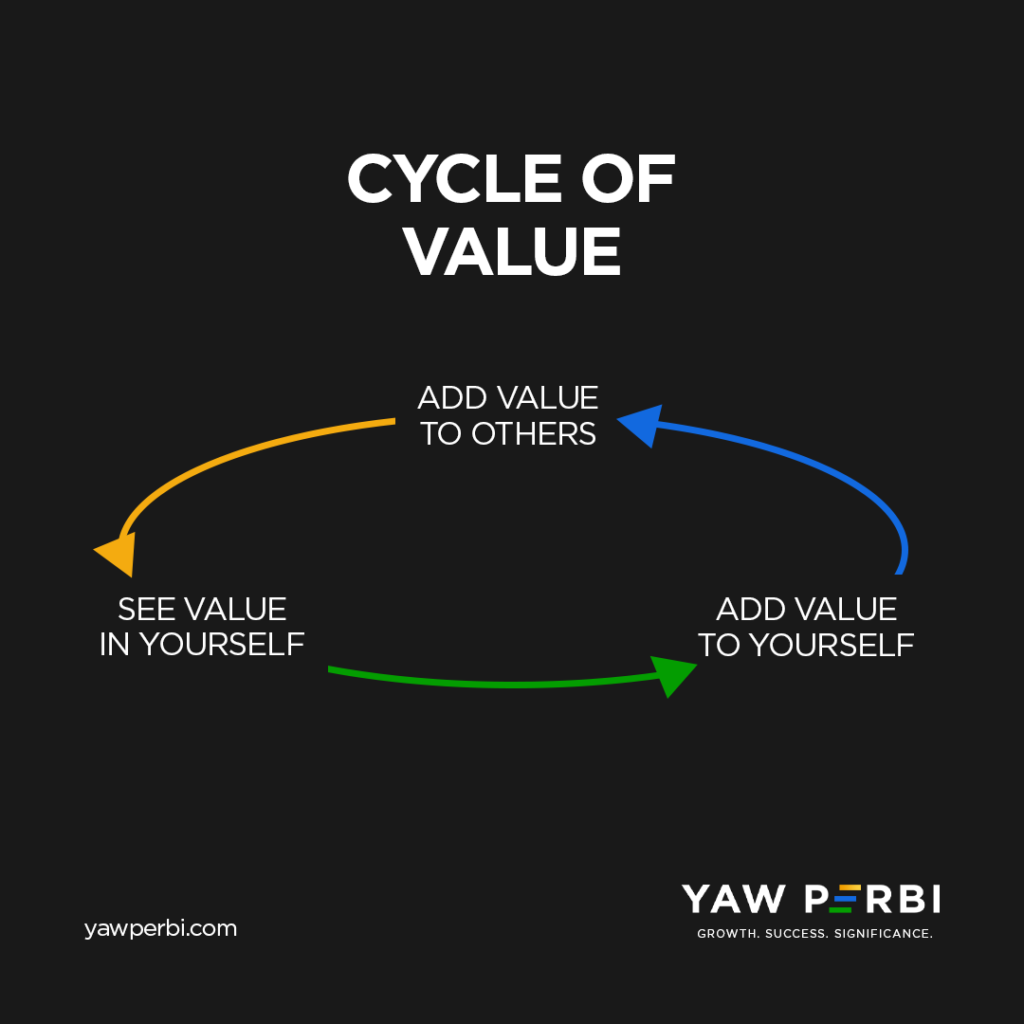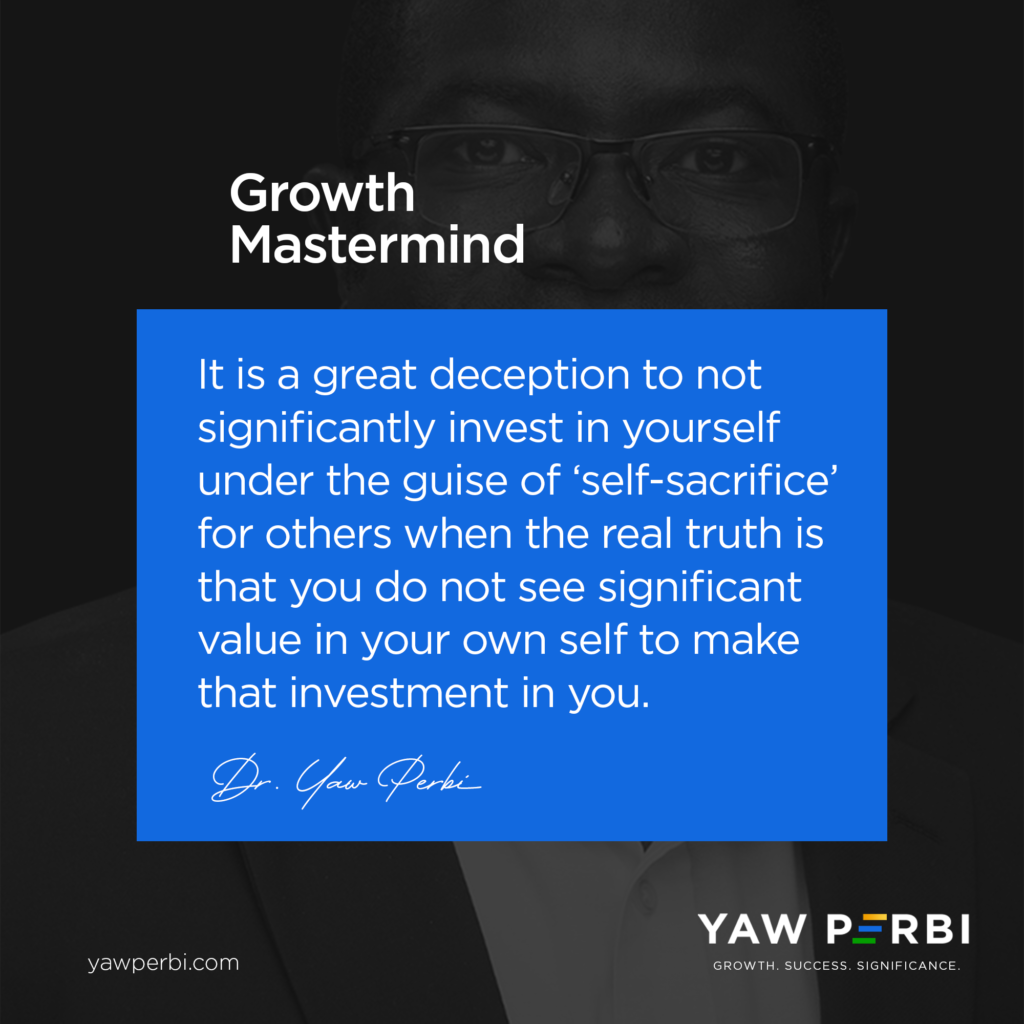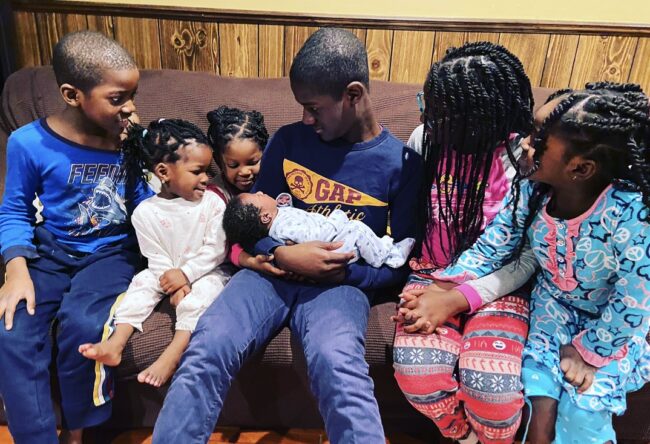
Family Planning Isn’t What You Think
There has been such an overwhelming response (over 80,000 reached!) to a social media post I made regarding a misconception about the essence of family planning that I felt it might be useful to document that write-up on this blog.
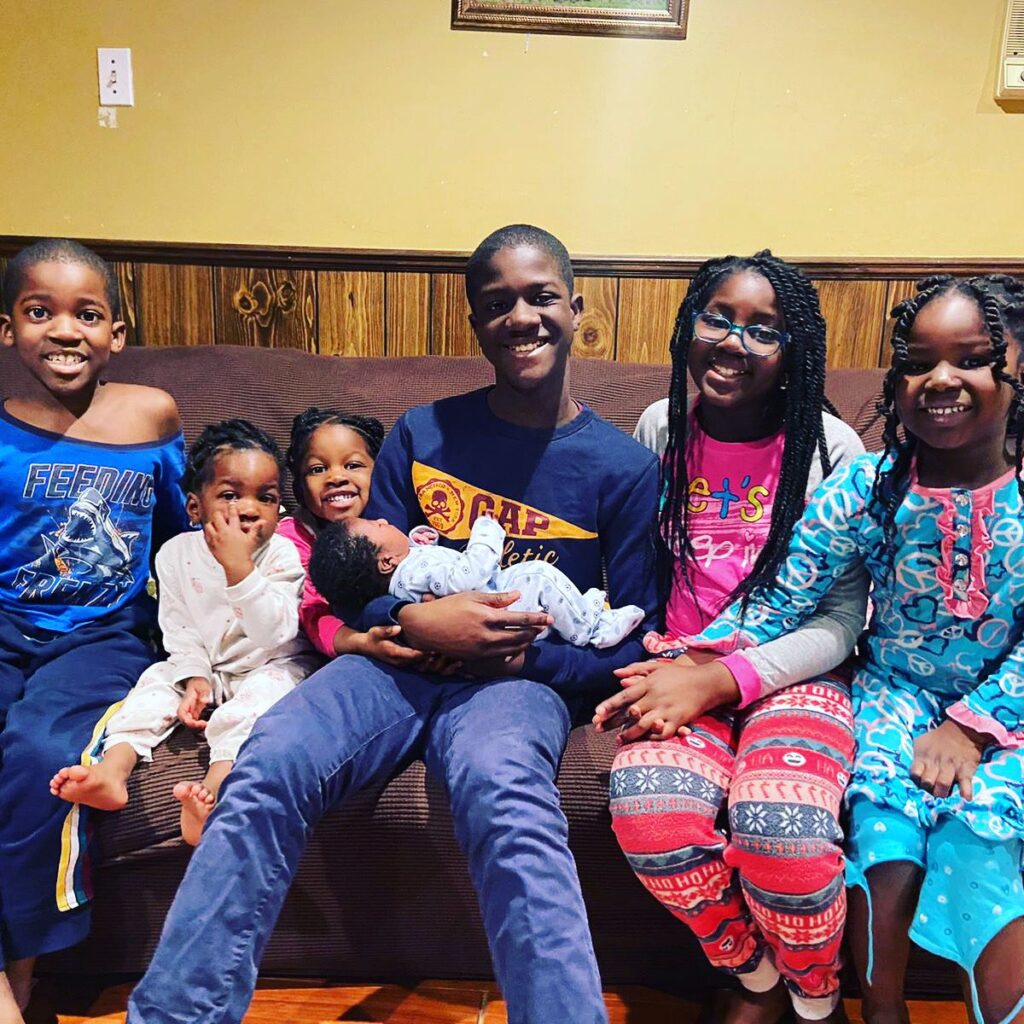
Our six older children totally excited about the arrival of the seventh the day we got back from the hospital after delivery.
On Tuesday, March 2nd our seventh child was born. The rather long boy descended down his mother’s birth canal at the Montreal Jewish Hospital in all his 3.895kg glory. The posting of this momentous occasion on social media sparked a flurry of responses, almost 100% affirmative but I won’t be fooled. Not everyone thinks my wife and I are smart, planet-friendly, trendy, progressive, modern and such.
Just a couple of weeks earlier I had been on a Zoom call with a just-married pastor in Ontario who hopes to have a family of three children. Upon hearing that Anyele and I were expecting again, our seventh child for that matter, he unwittingly asked, “why so many?” To which I responded, “why so few?” The blushing of his face and awkward laughter revealed his embarrassment.
I have mentioned before how people have made it very clear to Anyele and I that they would rather raise pets than have children. Generally our human selfishness/self-centredness doesn’t allow us to do the parenting thing (at all or well) because children are an inconvenience, suckers, an unwelcome reflection of our marred selves, among a host of other postmodern reasons. See here.
“WHY SO MANY?”
We have met people who are proud DINKS–Double Income No Kids. In many circles we’ve been in, this has been the ‘in thing’ or at best two is the most ‘decent’, ‘smart’ and even ‘cute’ thing to do. As I heard one preacher humorously quip, “a boy for me and a girl for you, and praise the Lord we’re finally through!” A year ago, I shared here some of the reasons why Anyele and I have chosen to have “so many.”
Having children or not, many or few at the end of the day is more of a worldview issue than a socio-economic or even climatic one. I share our Christian theist view in this blog. In summary, “There is a higher Being than our selfish selves that beckons; a higher purpose than the painful inconvenience that compels; and a deeper fulfilment of something (and someone) that outlives making merry today and just dying tomorrow.”
THE INTEGRATED LIFE
At our executive education firm, YAW PERBI, we strive for LIFE in all its fullness—#Leadership, #Integrity, #Family, #Entrepreneurship. I personally find it curious that many in the corporate space ignore, even hide, family (and faith) until occasions like Christmas. All of a sudden families come out of the shadows, whipped out and splurged on Christmas cards. You can go on LinkedIn right now and see how it is so ‘professional,’ meaning, almost family-sterile.
I’m super proud of my Wonder Woman Wife, Economist-Entrepreneur Extraordinaire, for the safe delivery of our seventh. We thank God for the privilege of a full quiver of seven lethal arrows for life’s battles, conquests and such. This baby, like the preceding six, will change our lives no doubt—rescheduled meetings, halted plans, budget increases… but what else could life be about?! True success, as my mentor succinctly puts it, is “when those who know you the best, love and respect you the most.”
At Yaw Perbi, we promote people and cheer on companies that seek leadership authenticity by making the integrated life the way to go. Call it life/work balance or whatever you may, our corporate folks, especially C-level folks, must find a way to bring their whole selves to family and same to work. My favourite MBA teacher on this, Bill George, says more about this more eloquently than I could here. Cheers to the #integratedlife, where marriage is not an inconvenience, children are not a nuisance and family is not an afterthought, only receiving the crumps of our time, talent, treasure and efforts.
FAMILY PLANNING ISN’T NO/FEW CHILDREN
Why do so many people wrongly think ‘Family Planning’ means having few/no children? Family Planning is “the ability of individuals and couples to anticipate and attain their desired number of children and the spacing and timing of their births.” Although it was clearly a quote (inverted commas and all), a lot of people on social media were giving me a pat on the back for this spot-on definition without realizing it isn’t something I cooked up to justify my number of children, but actually a World Health Organization (WHO) definition. Of course they add contraception as the means to achieving this desired end of number, spacing and timing.
Even before we got married 15 years ago, Anyele and I purposed and planned to have seven children. There were no guarantees; God ‘engraced’ us. Don’t judge us for having “too many” (in your opinion); we shan’t judge you for having “too few” (in our opinion) or even none.
Your purpose and plan may be different from ours. The most important thing is to ensure that it is God’s unique plan for your unrepeatable family that you are following and not just “comform[ing] to the patterns of this world.”
We hope your Family Planning excites you a lot and scares you a little—just like ours!
Related Blogs
We Really Don’t Like Children That Much Part 1/3
We Really Don’t Like Children That Much Part 2/3
We Really Don’t Like Children That Much Part 3/3

Born in the Month Ghana was Birthed, Nii Ajorwor Ampa Perbi is here!
It is always an honour to get to name someone or something, especially a seventh biological child. The historic and prophet names of the other children have been explained in the past here.
Our seventh, and final, child was born on March 2, 2021 at the Jewish General Hospital in Montreal, Canada. In accordance with our Akan (Yaw’s) and Ga (Anyele’s) traditions of Ghana, we named him on the eighth day, the same day of his birth, Tuesday, a week later. Like all his siblings before, the 3.895kg champion, whose 54cm height excited the obstetric staff because it’s over the 97th percentile, has been given a name pregnant with historic and prophetic meaning. And his name shall be called NII AJORWOR AMPA PERBI. Here’s what each given name means:
NII
All the older six siblings are called Nana, an Akan title meaning prince(ss) and also signifying God as King. Nii is the Ga equivalent of Nana.
AJORWOR
Over a dozen years ago, with inspiration from the life of the patriarch Abraham we felt called out of Ghana: “Go from your country, your people and your father’s household to the land I will show you.” So we did, leaving a great life in Ghana to start from scratch in Canada. The commission came with a commiserate blessing though: “I will make you into a great nation, and I will bless you; I will make your name great, and you will be a blessing. I will bless those who bless you, and whoever curses you I will curse; and all peoples on earth will be blessed through you.” (Genesis 12:1-3)

The Ga version of Genesis 12:1-3. You see a variety of renditions of blessing (jormor–anglicized): major (I will bless), aaajor (be a blessing)
It’s been nearly a decade-and-a-half since our being called and sent forth and we feel we’ve really and truly been blessed by the LORD in every sphere of life–physically, spiritually, socially and academically (which was the original door open in Canada). Ajorwor means “we’ve been blessed” or in context, “God has blessed us!”
And we are blessed not just qualitatively but quantitatively too! We had one child at the time of the promise, now we have seven times the number of children! Every child is a blessing, a reward, a heritage from the LORD and an arrow for waging life’s battles and extending the glory of the Kingdom of God on earth as it is in Heaven. Indeed our quiver is full, and the Psalmist says we are blessed for having a quiver full of arrows!

Ajor nuu means “blessed is the man,” but we say ajor wor, “blessed are we all,” for having a quiver-full of sharp arrows
AMPA
Ampa is the baby’s maternal grandfather. When we felt it would be appropriate to name our last child after this noble man we didn’t know Nii Ajorwor would be born so close to Ghana’s Independence Day, March 6. You will soon understand the significance of this. Initially called Kwame Patterson, great grandpa changed his name to Nii Ampa Sowa. He left to study Industrial Management at Leeds Polytechnic, United Kingdom, in 1958, a year after Ghana’s independence from British colonial rule.
Asked by his cousin Ebenezer Ako-Adjei, one of the ‘Big Six‘ founders of Ghana, to come back to help him run his Ministry (Foreign Affairs), he returned to Ghana and became his Personal Assistant in 1960. In 1963 when Ako-Adjei was arrested in a political frame-up, Anyele’s grandfather was arrested too. He was released from Usher Fort and Nsawam prisons after six months detention. He left the civil service.
In 1965, he joined Parkinson Heward (builders of the Tema industrial municipaity) as a bookkeeper. In February 1966, when there was the coup d’etat by the National Liberation Council that ousted Kwame Nkrumah’s government, Parkinson Heward was asked to leave the country. He vowed never to join politics again… hence Anyele’s dad’s aversion to politics! Nii Ampa Sowa passed away in 1980, while Anyele’s dad was pursuing his graduate studies in Canada, where Anyele was born.
THE BLESSING
Interestingly, Ajorwor (“we are blessed”/”we’ve been blessed” in Ga) combined with Ampa (“true” in Akan), Ajorwor Ampa means “truly blessed!” So we have been blessed indeed; but blessing is a mountain with no peak. There’s so much more where these blessings came from and we trust that Nii Ajorwor not only represents blessings past but is a divine sign and a symbol for many more blessings to come to our Perbi family and through us, to all nations! Welcome, Nii Ajorwor Ampa Perbi! Akwaaba!
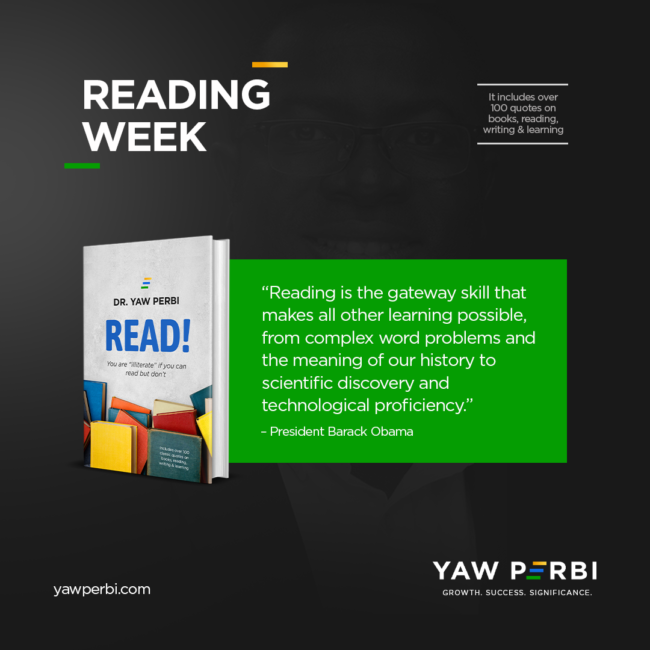
I Used Not To Like Reading. Two Statements Changed Everything.
I wouldn’t be where I am today but for books. I mean precious books like the Holy Bible (which I’ve read cover-to-cover about 10 times), Rich Dad Poor Dad (Robert Kiyosaki), The 7 Habits of Highly Effective People (Stephen Covey), The Purpose-Driven Life (Rick Warren), Before You Say I Do (Yaw Boamah), The 21 Irrefutable Laws of Leadership (John Maxwell), The E-Myth (Michael Gerber), The Prayer of Jabez (Bruce Wilkinson), Create Your Own Future (Brian Tracy), The Emotionally Healthy Leader (Peter Scazzero) etc. My life five years ago is totally different from my life now—and so was my life five years prior to that totally different—just because of the books I’ve read.
Consequently, for a decade-and-a-half now I’ve been a serious reading campaigner. Now, not only have I grown further fierce in campaigning for people to love reading, my wife and I have stepped up by stepping down. What I mean by that is, we’ve enhanced our campaign but decided to go further down to the age where humans are most pliable: childhood. And we began with our own seven children. This is the philosophy behind Perbi Cubs Library Services. You may find the story behind Perbi Cubs here.
But being a reading enthusiast, let alone champion, hasn’t always been so. I used not to like reading, at all! Then two statements hit me hard and totally shifted my paradigm, absolutely altering my way of thinking.
THE ‘RACIST’ & ‘TREMENDOUS’ STATEMENTS THAT CHANGED EVERYTHING
The first statement, I randomly encountered on the internet. I was but a youth then. As I confess in my book READ!, “I was so angry my intestines could have gushed out. If I were light skinned my face would’ve turned tomato-red instantaneously. Yet deep, very deep down my heart I knew there was a truth in this almost racist statement glaring at me from the computer screen.” This is what it said: “THE BEST WAY TO HIDE SOMETHING FROM BLACK PEOPLE IS TO PUT IT IN A BOOK!” Ah! Upsetting! Yet in many ways this is true, I’m ashamed to admit: We don’t read!
The other paradigm-knocking statement was Charlie ‘Tremendous’ Jones’ rather prophetic pronouncement: “You will be in five years where you are today except for the people you meet and the books you read.”
These two statements turned my life around to not only become a voracious reader and prolific writer, but an advocate of the same!
WHAT IS READING?
We all have read (or even still reading even right now) academic or technical texts to pass an exam or for promotion, for professional growth etc. That is not what I mean by my read campaign. When I speak of reading I mean leisure reading. Also known as “recreational reading, pleasure reading, free voluntary reading, and independent reading,” it is “independent, self-selected reading of a continuous text for a wide range of personal and social purposes. It can take place in and out of school, at any time” (International Reading Association).
Samuel Johnson shares the following sentiments: “A man ought to read just as inclination leads him; for what he reads as a task will do him little good.” I get him. Leisure reading must be voluntary and pleasurable–not just a chore–if it is to benefit us maximally.
WHY MANY ARE SCHOOLED BUT STILL “ILLITERATE”
Several of us who have learnt “ABCD…” and can practically function simply do not read. In my book READ!, first published in 2005, here’s my thesis: If you know how to read and you don’t, you are no different from the illiterate! The bottom line is the same: you both don’t read! That’s why the subtitle of the book is “You are an “illiterate” if you can read but don’t.” Many years ago Mark Twain put the same idea this way: “The man who does not read good books has no advantage over the man who cannot read them.”
CONCLUSION
If it’s any comfort to you, a guy who used not to like reading today reads several books at the same time! Even further, I’ve acquired this new habit of writing several books at the same time too! Something you need for your future to happen is hidden in a book near you. As they say at Perbi Cubs, “success is just a book away.” And it’s true. If you don’t believe Perbi Cubs or Charlie ‘T’ Jones, take it from me.
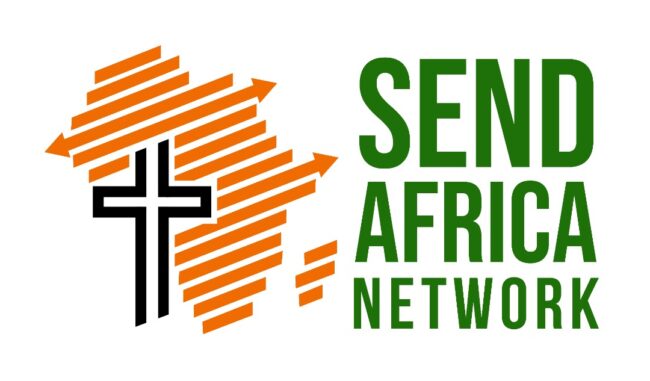
Black History Month | Africa Leads the World
There is no talk of Black History without faith, especially the Christian faith. PBS recently released a fascinating Henry Louis Gates Jr. documentary on the Black Church. What some dubious people tried to oppress and suppress black people with became the very thing that liberated us and is now giving us a global leading edge.
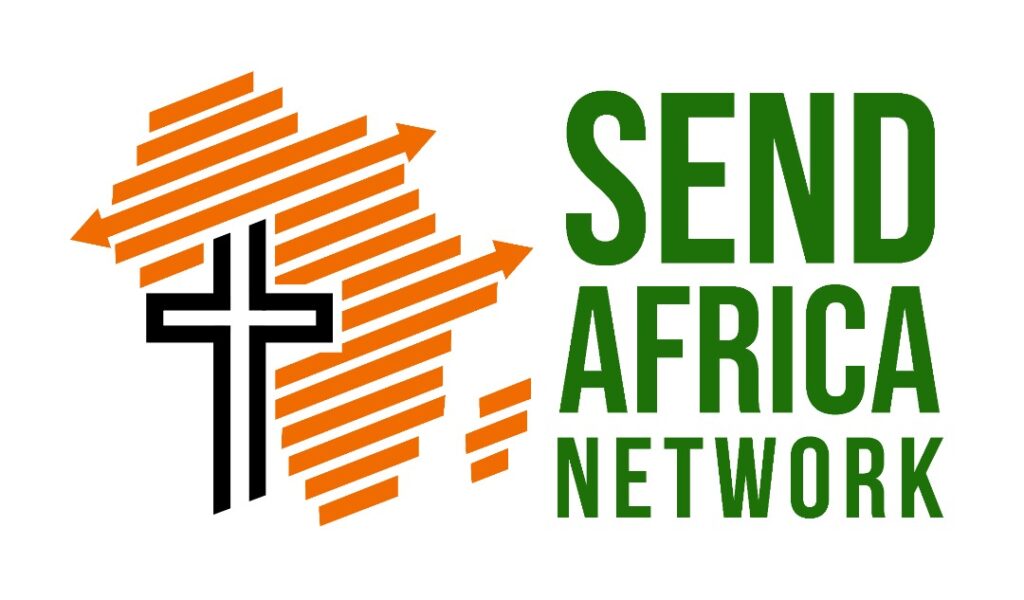
Send Africa is an evolving missions network whose DNA and launch YAW PERBI is privileged to help shape and midwife
Africa is the most Christian continent in the world today. The year 2018 was the first in history where there were more Christians in Africa than on any other continent in the entire world! (Johnson 2018) THIS IS A BIG DEAL!—this is a one-thousand year record held by Europe that has been broken by Africa in our lifetime. That makes me super excited about Black History Month this year because history is being made right now. As you read this, a number of continental Africans and those of African descent in the diaspora have synergized to birth a new network known as Send Africa to promote further faith formation among ‘unreached people groups’ around the world.
At the formal launch of this Send Africa Network online on February 24-25 during this 2021 Black History Month, my Kenyan friend, Sam Ngugi, and I will be launching a ground-breaking book entitled Africa to the Rest to celebrate this huge feat of Africa becoming a leading global force of faith to the rest of the world. This book is to “celebrate this momentous occasion in world history that has been inadequately highlighted by mainstream missions and missions. It traces some of God’s goodness to Africa in the Bible and throughout history until now to make clear that Africa and Africans have been central to God’s missional purposes; not an afterthought.” You may register for the Send Africa Summit here.
CAPTURED & DISTORTED HISTORY
Of course Africa features in the Bible from start to finish. There were actually two black guys (among the five) that played hands on the apostle Paul and commissioned him on his missionary journeys (Acts 13). Africa is the cradle of monasteries and ecumenicsm. The term Trinity came from Tertullian the Tunisian. St. Augustine was from Algeria, and not a European as we were made to believe growing up in Africa.
As Sam and I state in our book, “People consider Christianity as the white man’s religion to oppress the African due to the last 500 years of Euro-American missionary activity mixed with colonialism without realizing that the first 500 years A.D., Africa was so synonymous with Christianity that one of the most common terms for Christians in Arabic sources is afariqa–indicating a significant degree to which “Christian” and “African” were synonymous concepts (Merrills 2004, 303).”
In fact, the subtitle of our book is “from mission field to mission force (again)“ because Africa(ns) as a mission force first impacted Europe with the Gospel! That notion that Africa first evangelized Europe is the essence of Thomas Oden’s book titled How Africa Shaped the European Mind. “My core hypothesis,” Oden himself says, “is that much intellectual history flowed south to north: from Mumidia to Sicily to France and Italy. It flowed from the Nile to the Euphrates and the Danube. It flowed from Pelusium to Gaza to Cappadocia. …There is ample evidence available that the seeds of African orthodoxy have been lifted by high winds to distant northern climes. Only much later have they returned to Africa in a Western guise.”
Only a century ago, at a world missionary conference in Edinburgh, not only was there no continental African there as a delegate, we were described as “heathen” in need of being saved. Today there are more Anglicans in Kenya than in England. At the time, the continent had 9 million Christians while Europe was home to 406 million. Today, Africa has over 630 million Christians, a clear 30 million more than Latin America in second place with Europe in third place with 571 million Christians. And it’s not a nine-day wonder, for by 2050 (Deo volente), there will likely be more Christians in Africa (1.25 billion) than in the next two continents combined! (Johnson 2018)
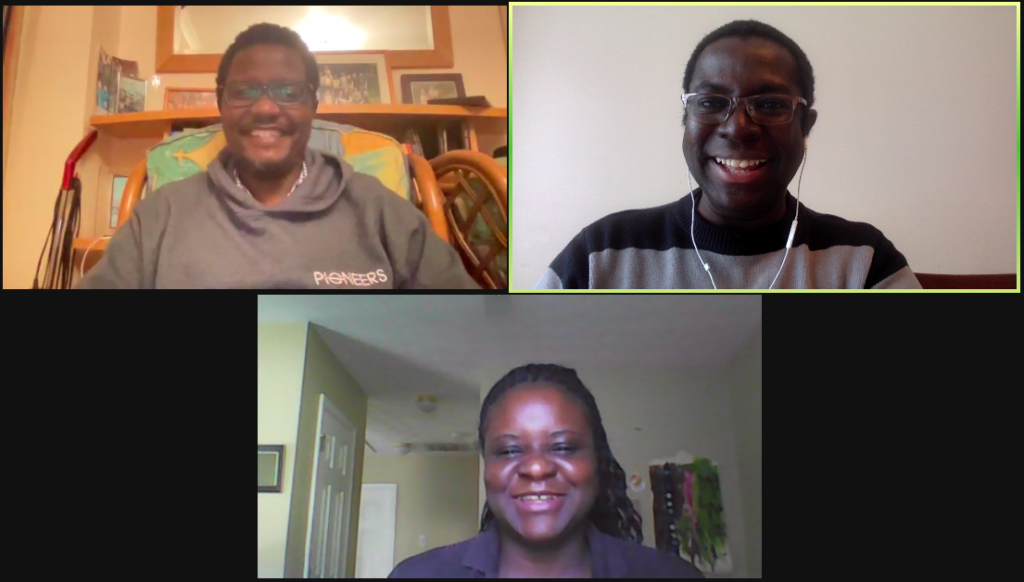
The all black ‘Africa to the Rest’ team of two writers and an editor on a Zoom call from Canada, the USA and England
UNDENIABLE PRESENT
It is good to know that Africa leads the world in something. There are churches that began in Africa and are in 198 countries now. The largest congregations in Europe are pastored by Africans, like Sunday Adelaja’s in Kieve, Ukraine. The most multinational congregation in the world—108 nationalities—was founded by and pastored by my good friend and mentor in Vancouver, Canada, Dr. Sam Owusu. I could give you a list of about 10 global mission organizations–including the Navigators, SIM, Langham Partners and SIL–currently led by Africans!
Why is all this important? For many reasons but three will suffice for now. First, black people have been part and parcel, even central, to the purpose and mission of God unlike others have tried to make us think. We are equally made in the image and likeness of God as anyone else. We ought to rejoice and while not bragging about ourselves, ‘make our boast in the LORD.’
Secondly, the Christian faith is authentically African. As one scholar put it, Christianity is a beggar looking for clothes in whatever culture it goes into. The fact that it was captured by Europeans and Americans and tailored as a tool of oppression of blacks in slavery, colonialism etc. is simply not right (not the authentic Christian faith) and doesn’t make the faith the preserve of the white man either.
Finally, the business world and other sectors in Africa that are trying to make a mark on the world stage could learn a thing or two from the African Church that leads the world in faith today, hands down.
THE FUTURE HAS COME
I come from a long and rich family history of black (hi)story tellers. My grandfather was an emeritus professor of ethnomusicology and my mother is a professor of history with a specialization in the slave trade. I feel privileged to take my turn to tell stories of African leadership, and in this particular case, leadership in faith, church and missiology.
The assassinated Congolese nationalist leader, luminary and first Prime Minister of the Democratic Republic of Congo, Patrice Lumumba, must be smiling in his grave that the day he prophesied is here: “The day will come when history will speak. But it will not be the history which will be taught in Brussels, Paris, Washington or the United Nations… Africa will write its own history and in both north and south it will be a history of glory and dignity.” The day has come!
For those of no faith and saying to themselves “who cares if Africa is the most Christian continent?” because we’re yet to see it tell on our socioeconomic indicators or the millennium development goals, just you wait. Works soon follow faith. Unless it’s not true faith; because faith without works is dead.
References
Johnson, Todd M., Gina A. Zurlo, Albert W. Hickman, and Peter F. Crossing. “Christianity 2018: More African Christians and Counting Martyrs.” International Bulletin of Mission Research 42, no. 1 (January 2018): 20. doi:10.1177/2396939317739833.
Merrills, A. (Ed.). (2004). Vandals, Romans and Berbers: New Perspectives on Late Antique North Africa (1st ed.). Routledge, 303. https://doi.org/10.4324/9781315235127
Oden, Thomas. 2007. How Africa Shaped the European Mind, Downers Grove: InterVarsity Press, p.71.
Perbi, Yaw & Sam Ngugi. 2021. Africa to the Rest: from mission field to mission force (again). Forthcoming. Xulon Press.

Black History Month | Why the Protests of 2020 Had a Sense Déjà Vu About Them
Here is the entire preface to the 2020 version of YouthPower! in Soweto for your enjoyment and edification. This book was first written 15 years ago upon a life-transforming visit to South Africa in 2005. The anti-racial protests in 2020 were like a 1976 déjà vu and inspired me to get this re-release going for today’s generation to remember and soldier on.
“It is better to die for an idea that will live,
than to live for an idea that will die.”
Steve Biko
The Definition of Black Consciousness, I Write What I Like, 1978
It is 2020. The pandemic year. The epochal events of this year, on both sides of the Atlantic, have had such significant parallels with the youth uprisings and protests in apartheid South Africa in 1976 that after procrastinating the republishing of this book for years I finally got the umph to do it.
“Police brutality.” “Systematic racism.” “Peaceful protests turned violent.” “We are dealing here not with a spontaneous outburst but with a deliberate attempt to bring about polarisation between whites and blacks.” “This government will not be intimidated and instructions have been given to maintain law and order at all costs.” Do any of these phrases and sentences sound familiar? Yet these are not from 2020; these are all 1976 words and phrases!
With the world slowed down, even locked down, we all had the time and bandwidth to take in the slow slaughter of an American young man, George Floyd, by those paid “to serve and protect” him. The aftermath of #BlackLivesMatter protests in the United States and around the world seemed like a coordinated tsunami. Perhaps no other year has there been more concerted protests against police brutality, systematic racism and no-nonsense towards anything or anyone glorifying an apartheid, segregationist, slavery or colonial past.
At a point, the confluence of 400th year anniversary of the first slave setting foot in America, a plague (COVID-19) and protests by the oppressed made me wonder if this was not a modern replay of the biblical Exodus, the liberation of Israel from Egypt.
Then just when things seemed to be settling down, #endSARS happened. Nigerian youth wouldn’t take the brutalization of their kith and kin anymore either. The well-organized air war (via social media) and on-the-ground protests did result in the dissolution of the notorious Special Anti-Robbery Squad (SARS) that had been unleashing untold mayhem on the Nigerian people, especially youth, for years. Some paid the ultimate price for daring to express their Youth Power! May they rest in peace. May their death bring life.
In all the standing up to, shouting out and marching against, the core demographic has of course been Young People. Youth Power! at work again; just as in 1976. In fact, my favourite picture of the 2020 protests in the U.S. so strongly correlates with a scene from 1976 although both events are seas and decades apart. On the streets of America in 2020 the youth held placards that read, “We are not our ancestors. We will fuck you up.” In Soweto, 44 years earlier, the youth had asserted similarly, “Our parents are prepared to suffer under the white man’s rule. They have been living for years under these laws and they have become immune to them. But we strongly refuse to swallow an education that is designed to make us slaves in the country of our birth.”
It seems to me that like the Boomer generation of 1976, the Millennial, Gen Y and Gen Z generations alive and kicking in 2020 have also taken seriously their mandate to leave the world better than they found it. “You see things; and you say “Why?” But I dream things that never were; and I say “Why not?”” [said a certain wise man]. I believe that was the Youth Power! mindset in 1976, replayed in 2020. Here’s to celebrating Youth Power! from Soweto to Minneapolis to Lagos to the ends of the earth.
POST SCRIPT
I am humbled by my very rich family history of Black story-telling. My grandfather, J.H. Kwabena Nketia, was an emeritus professor of ethnomusicology whose lifework was dedicated to documenting the songs and drum language of African peoples while my mother, Akosua Adoma Perbi, is a professor of history with a specialization in the slave trade, indigenous and trans-Atlantic. It seems my turn has come to continue a family tradition.
I can understand those in my generation who feel Black people are too yesterday-focused and are pushing for this month to be Black Future Month instead of Black History Month. A word of caution though: we must know our history well–although not dwell in the past–if we are to be and do today what will make our tomorrow better than yesterday. As a wise man once said, “Those who do not learn history are doomed to repeat it.” 2020 has proven that history tends to repeat itself.
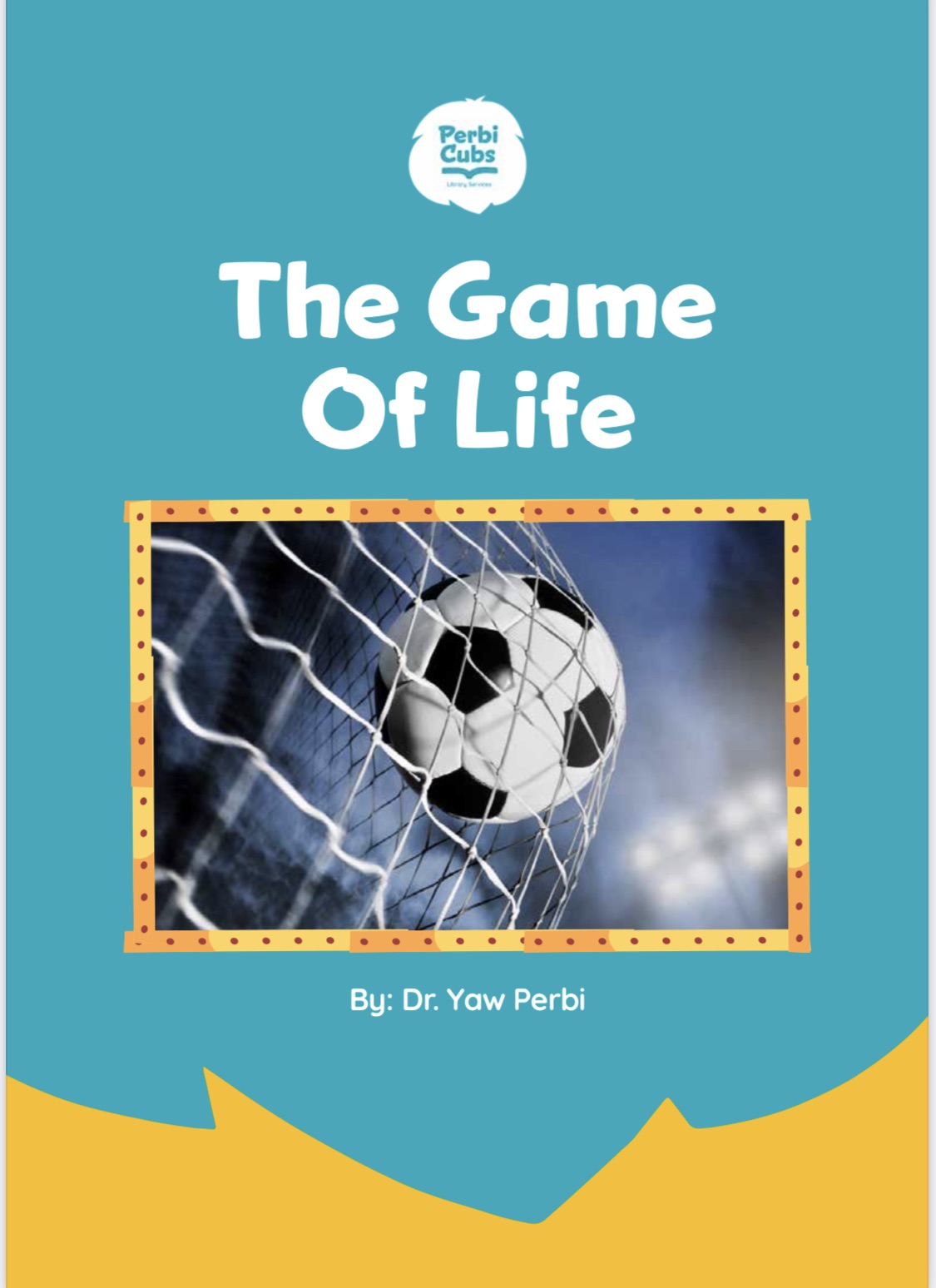
Life is Like Football | There’s No Winning Without Goals
The content of this blog was first published for patrons of Perbi Cubs Library Services. I feel compelled to largely reproduce it here (with tweaks) because of the alarming rate at which adults (including parents of these cubs) are feeling jaded by goal-setting. Perhaps like the greatest teacher who ever lived put it, our attitude should be like children in order to best learn.

Front cover of original book for Perbi Cubs
“GOOOOOAL!!!” It is not uncommon to hear the whole city or town where you live roar “GOOOOOAL!!!” This is when the favourite local or national football team scores a goal. Sometimes the whole city is dead silent, like a cemetary, because people are anxiously watching the game at the stadium or on television. Some even combine listening to radio commentary with watching television pictures at home! There are barely cars on the road or people in the street. You would think it is a ghost town if you were a visitor passing through until all over a sudden you are jolted by the loud roar “GOOOOOAL!!!”
There will be no point of the game of football without goals. And that is why there are goal posts with a net to capture the ball. The way to get ahead in the game is not all the activities of passing the ball, dribbling, somersaulting or even striking the ball hard and strong but getting the ball into the opponent’s goal posts. The goal of football is to win by scoring goals. Otherwise, all the activity does not mean any accomplishment!
And it doesn’t matter if you are not a football fan. The principle is the same, whatever your favourite game or sport is. Is it basketball, tennis, or swimming? What is the point of the game or sport? How do you keep score? Is there any way to determine who won without keeping score?
LIFE IS LIKE FOOTBALL
It is hard to imagine a game without goals yet many people play the game of life without any goals. No matter how important games or sports are, they are not as important as life itself. So if even football has goals to win how much more should we set goals in life to win at the game of life! And using the notion that Covid-19 derailed much of our goal-setting in 2020 so setting goals is of no use anymore is as ridiculous as saying because a certain football match was rained off (or postponed because there was an earthquake) there should be no more football in future. You must’ve heard before that extreme cases make bad laws.
You may also have heard it before that “if you fail to plan, you plan to fail.” There is nobody I know who plans to fail in life but if they fail to plan, they are automatically planning to fail. You may be very busy in life or working very hard but remember, activity does not mean accomplishment. And without goals, you cannot measure accomplishment.
WHAT A GOAL IS AND HOW WE FAIL
A goal is an aim; an end. A goal is the result to which your activities or effort is directed because activity is not necessarily synonymous with productivity. In a game like football, the goal is physical and obvious. In life, one has to be more intentional about what goals are. Mentor Maxwell calls a certain principle the Law of the Rubber Band: “growth stops when you lose the tension between where you are and where you could be.” So we all need stretch goals! For goals to grow you,“a goal should scare you a little, and excite you a lot,” says Joe Vitale. It is quite the art trying to gauge the best tension because either extreme–too easy or too hard a goal–and we loose the tension in our life’s rubber band (so-to-speak). We’re either too lose and useless or too taught and snap–useless too. We hit nothing when we don’t get the tension right. The goal should stretch but not break us. More about this in my next blog.
The other thing I’ve learnt recently is the best chance of meeting a goal is to set it in line with your personality type (take the DISC personality assessment now if you haven’t). While the high I (sanguine) might be motivated by making a game of goal-setting and rewarding themselves to hit their goals if the high D (choleric) finds a goal whose accomplishments puts her “in charge” (they love control) she will breeze through hers!
IN WHICH AREAS SHOULD WE SET GOALS?
We should set goals in every area of our lives. If we do then we can have all-round success. The greatest leader who ever lived, Jesus Christ, lived a holistically successful life in part because as a little boy, “Jesus grew in wisdom and stature, and in favor with God and man” (Luke 2:52). So we too must set goals in:
-“wisdom” (mental goals)
-“stature” (physical goals)
-“favour” with God (spiritual goals)
-“favour” with man (social goals).
Mental (academic) goals: These are learning goals. A good example of a mental goal may be to pursue a Master’s in business this year .
Physical goals: These are health and wealth goals. A good example of a physical goal may be to eat a fruit everyday this year or to exercise 30 minutes a day at least thrice every week.
Spiritual goals: These have to do with your relationship with God. A good example of a spiritual goal may be to read your Bible and pray everyday.
Social goals: These are about relating to people. A good example could be to institute date nights with your spouse or check on your ageing parents each week.
GOALS MUST BE S.M.A.R.T.
Can you imagine if the goal posts in a game of football weren’t clear? Can you imagine if they could be anywhere on the park at anytime? Also can you imagine if you had no idea how much time you had in the game to score goals and win? Just when you think you have 30 minutes the whistle goes to your surprise within two minutes?
In the same way, the more detailed and sure the goals you set in life are, the better. For us to be able to hit our goals in life, these goals must be S.M.A.R.T. This means they goals should be:
–SPECIFIC: Don’t just set a physical goal like “I want to be healthy.” Be specific by saying, “I will eat fruits to be healthy.”
–MEASURABLE: How many fruits? A bunch of bananas or a dozen oranges? So to make the goal measurable say, “I will eat a bunch of bananas or two dozen oranges to be healthy.”
–ATTAINABLE: The goal should be something you can accomplish. It must be reasonable and realistic. Eating a whole bunch of bananas or two dozen oranges everyday isn’t reasonable. To make your goal attainable, say, for example, “I will eat one banana or one orange to be healthy.”
–RELEVANT: No one should set goals that do not add value to their lives. So ask yourself if this goal adds real value to your life. Is it relevant to be healthy by eating a banana or orange? Yes indeed! This one is a no brainer.
–TIME-BOUND: You must determine if this goal is daily, weekly, monthly, yearly, in five year’s time etc. So to complete making your physical goal Time-bound, you could say, “This year, I will eat one banana or one orange everyday to be healthy.”
LET’S GO LET’S GO!
So! Life is like football. In order to win, you’ve got to have clear goal posts and score goals! Set your goal posts now by setting S.M.A.R.T. goals for the year, quarter, month, week and even today. Score your goals and win in life. That’s the path to success. And yes, you are free to also roar “GOOOOOAL!!!” when you hit your goals too. “GOOOOOAL!!!” Life is like football. You’ve got to have goals to win it.
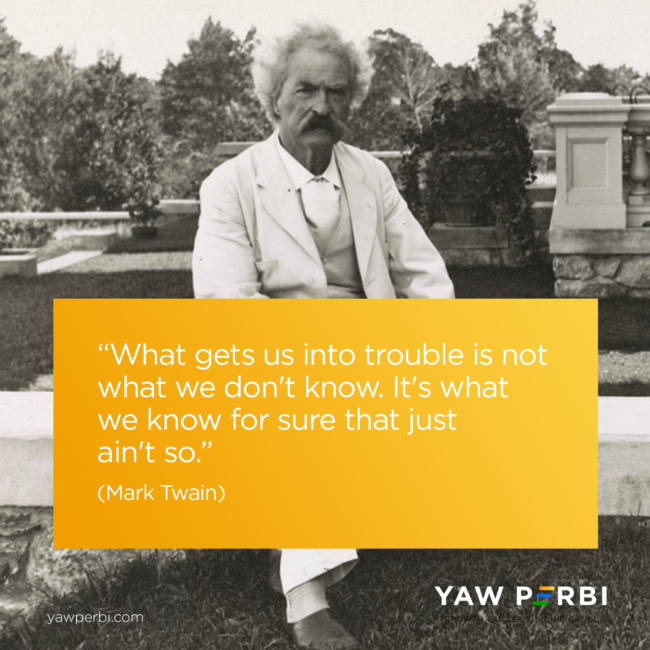
A Way to Prevent Heartbreak: Clarify Expectations
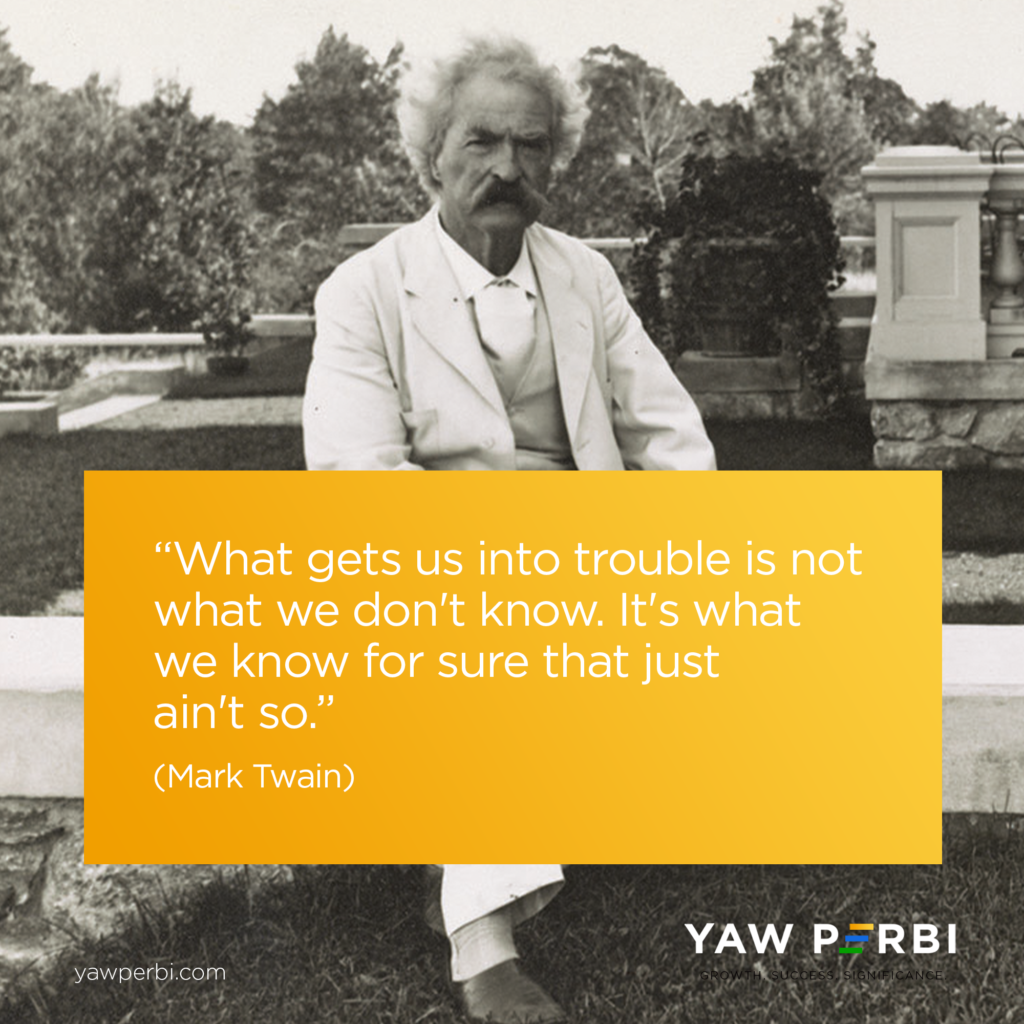
While what you don’t know may kill you; what you think you know but really don’t may kill you faster!
I have wanted to talk about this for months–how to prevent unnecessary hurt from unmet expectations–but last week an incident happened with one of my associates that really catalyzed me to share this urgently. So let’s talk about unmet expectations.
Whether it’s between spouses, parent and child, boss and workers or even among co-workers, family folk and church members, this is quite a common occurrence. This is particularly so African, Chinese, Japanese and Korean cultures that employ indirect communication. If you’re like me, you’ve probably been hurt before by unmet expectations. In fact, sometimes we don’t even realize we had an expectation until it was not met!
Mark Twain once said, “What gets us into trouble is not what we don’t know. It’s what we know for sure that just ain’t so.” We tend to have expectations that are unconscious, unrealistic, unspoken and unagreed upon. Let me share how you can flip these four things around and protect your heart against heartbreaks from unmet expectations. I owe this life-saving lesson from my New Yorkan mentors, Pete and Geri Scazzero.s
THE MILLION DOLLAR QUESTION
How do you know your expectations are valid or not? As hard-to-take as this may seem, when the expectation is unconscious it is invalid. In fact, if even we don’t even know we have them until we are disappointed how on earth is the other person supposed to know and meet it? When it is unrealistic it is invalid as well. Even if it is reasonable and we are conscious of it but it has not been articulated, it is still invalid. The common lame excuse we tend to give is, “Oh, but they should know?!”
In the event that our expectations meet all the above three criteria–conscious, realistic, spoken–but the other party has not agreed to them, they are still invalid. While this may seem very Western, I have learnt as an African-Canadian that it is never wise to assume agreement!
Of course, important caveats include marriage (where the vows already spoken have created certain clear expectations like fidelity), parent-child relationships (expectation of chores) and employer-employee dynamics where expectations have been clearly laid out in contracts and policy and supposedly read and accented to. Even in these relationships with broad-stroke expectations, situations occur that demand clarifying expectations further.
WHAT TO DO TO FORESTALL HEARTBREAKS
To prevent heartbreaks from unmet expectations, ensure your expectations are:
(1) Conscious: I am aware of my expectation.
(2) Realistic: I have evidence to support that the expectation is reasonable in the sense that the other is able and willing.
(3) Spoken: I have expressed the expectation clearly.
(4) Agreed Upon: The other person has agreed to the expectation by saying “yes.”
I would highly recommend you take the Scazzero’s Emotionally Healthy Relationships course for a full meal and good skill-building in this area they call Stop Mind Reading and Clarifying Expectations.
WHAT TO DO WHEN HURT HAPPENS
In the event that hurt still happens from unmet expectations, valid or not, REFRAMING the painful experience is everything. As John Maxwell renders it in the Law of Pain, “good management of bad experiences can lead to growth.” Reframe the painful experience as follows (modified from a Maxwell process):
a) Define the problem –> The painful situation I need to process right now is…
b) Understand your emotion –> My feelings about this are…
c) Articulate the lesson –> My lessons in is this are…
d) Identify a desired change –> The changes I want to effect are…
e) Brainstorm numerous pathways –> The ways out are…
f) Receive others’ input –> What I’m learning from others is…
g) Implement a course of action –> My course of action is 1. Embrace the reality of pain 2. Learn my lesson(s) 3. Share my lessons 4. Change a. ______ b. ______ c. ______ d. _____.
CONCLUSION
You know what they say happens when you assume: you make an ass of u and me. An expectation is only valid when it is mutually agreed upon. Let’s do less heart damage by providing and demanding clear expectations of others. Let’s ensure in all our relationships that our expectations are conscious, realistic, articulated and agreed upon. And when things fall through the cracks and we feel the sting of pain from unmet expectations, let’s reframe the experience well so we can still grow and flourish.
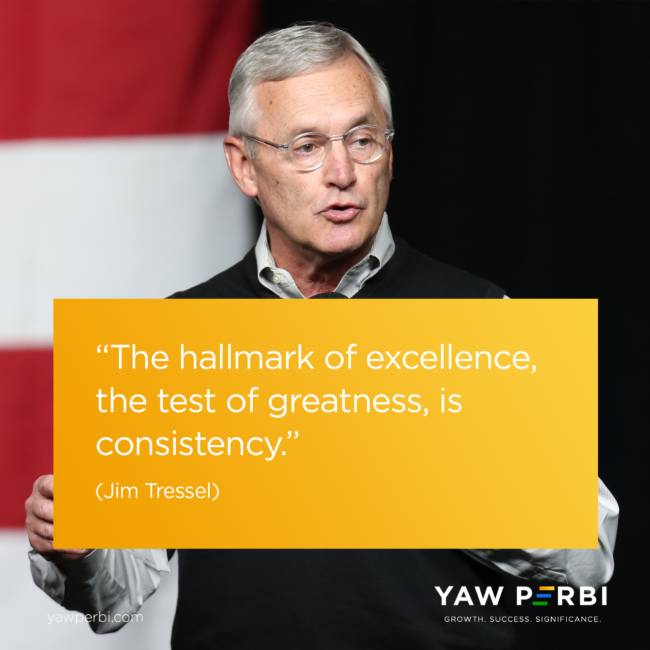
Successful People are Boring
In my late teens when I was introduced to the whole area of personal growth and success I started practising a number of things successful people do without necessarily knowing why. One of them was that they always took their receipts upon purchases. That became an adopted habit for about 10 years before I really got to understand why (that will be for a different day and blog).
One other thing that really fascinated me was the notion that successful people are predictable, consistent; or if you like, plain boring. This was not only in the sense of living a principle-centred life and holding unswervingly to their values but that they had fixed routines. You could literally ‘time them’ and ‘assassinate’ them because it was predictable where they would be, when, and what they would be doing literally every day of the week. That’s precisely what I mean by “successful people are boring.” Same. Same. Same. Same.
So I began to adopt strict routine in many areas of my life including consistently waking up at 4am to spend time in scripture and prayer, thinking, reading and writing. And I have done that consistently for over 25 years now. By the time the rest of the world wakes up and gets going, I would’ve had a 2-3 hour headstart and been über productive.
But now I understand why that consistency breeds success. This is in line with a number of fundamental, universal truths, three of which I would like to share here.
1. RIDING THE LAW OF CONSISTENCY
The Law of Consistency, which leads to growth and success states, “Motivation gets you going; discipline keeps you growing.” Anyone who gets a spark of inspiration or motivation overcomes the law of inertia momentarily but really how long does it last? I heard someone complaining about how transient the umph one gets from motivational talks is. A seasoned motivational speaker responded, rather tongue-in-cheek, “Of course! So are breakfast, lunch and supper!” Like meals, morsels of motivation also need to be taken in reasonable doses several times a day (and in a week) to jumpstart us but what really keeps the wheel of success turning always is discipline. Discipline is doing what we need to do even when we don’t feel like it. And that is the difference between those who succeed and those who don’t. E.M. Gray was spot on: “The successful person has the habit of doing the things that failures don’t like to do. The successful person doesn’t like to do them either, but his dislike is subordinated to the strength of his purpose.”
Disciple is hard; but what makes it more bearable is having a strong WHY, a strong end in mind. The other thing that makes it more doable is discovering your personality (eg. through the DISC behavioural assessment) and linking how you’re wired (what motivates you naturally) with the act you need/want to be consistent with. So for me, being a high D and loving to be in control, I’m greatly motivated to take charge of my morning knowing fully well that no one would be up to disturb me and I can get stuff I want to do done. You’ve got to a find a way, man, for success lies in our daily routine.
“We are what we repeatedly do. Excellence, then, is not an act, but a habit” is famously attributed to Aristotle. What he actually (originally) said was, “As it is not one swallow or a fine day that makes a spring, so it is not one day or a short time that makes a man blessed and happy.” The essence of both statements is the same. John Maxwell pulls no punches here: “You will never change your life until you change something you do daily.” What are you like E-V-E-R-Y-D-A-Y; what do you do E-V-E-R-Y-D-A-Y?
2. RIDING THE LAW OF MOMENTUM
People who are consistent with routine don’t waste precious time and energy figuring out every single day what to do with themselves. If you don’t have a menu, for example (my household does), you know by now how much time and energy can be consumed just by the question: what am I going to eat this afternoon? I have spent an hour on that useless exercise before!
Just like Newton’s first law of motion states, every object will remain at rest or in uniform motion in a straight line unless compelled to change its state by the action of an external force. What is true in Physics–and we tend to appreciate physical laws much more than the unseen laws of life–is the very thing that makes habits so powerful! “Once you pop, you can’t stop” says the Pringles advert. Success can become a habit; so can failure. In fact, Vince Lombardi once said, “once you learn to quit it becomes a habit.” Let the Law of Momentum
When John Maxwell launched 15 Invaluable Laws of Growth in Atlanta, I was there in person. A privileged few joined him for an intimate lunch session. I couldn’t believe the degree of his consistency when talked about his “daily five.” He said, “Everyday I read, I write, I think, I ask questions, I file.”
“Everyday, John?” we asked?
“EVERYDAY,” he responded.
On your birthday, John?
“EVERYDAY,” was his reply.
“On Christmas Day to0, sir?”
“EVERYDAY.”
3. HOW GENIUSES ARE MADE
It was my fellow Canadian, Malcom Gladwell, who first brought to my attention in his book Outliers, that 10,000 hours of practice of any skill makes one a genius. Most people, he said, would’ve done 10,000 of practice within 10 years. During an ongoing Growth Mastermind I was almost envious of the surgeon among us who says everyday he operates; e-v-e-r-y-d-a-y. Imagine his success in 10 years’ time when because of this consistency he has such gained ingenuity! What worthy thing are you doing everyday? Until you’ve done it consistently for 10 years, don’t give up on success just yet.
CONCLUSION
Something you are doing EVERYDAY is determining your future. Conversely, something you are not doing EVERYDAY is determining your future also. More often than not, motivation is overrated. Motivation gets you going but discipline keeps you going, keeps you growing. What will you say is your single most consistent practice (everyday) that has brought you where you are in life today? Please share.
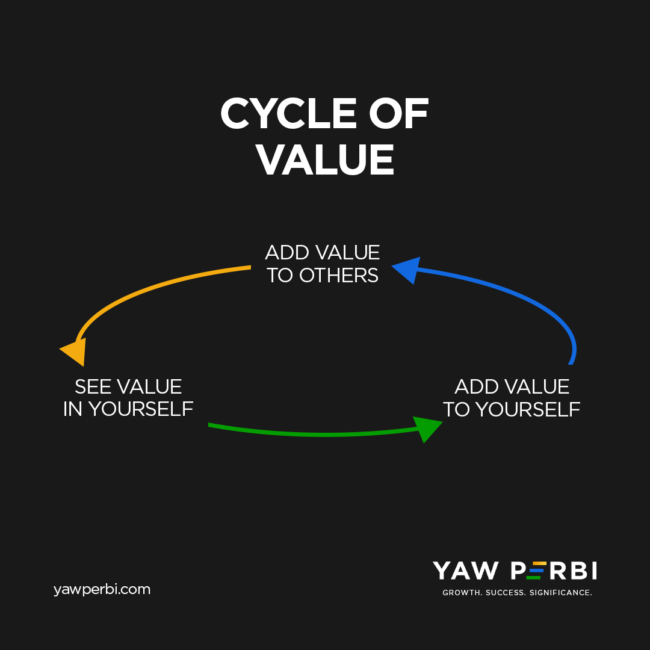
The Cycle of Value
Truly, truly, “you must see value in yourself to add value to yourself.” The author of The 15 Laws of Invaluable Growth calls this principle the Law of the Mirror. Author Denis Waitley put it another way: “Personal development is the belief that you are worth the effort, time, and energy needed to develop yourself.” Investment in your personal growth yields interest–not simple but compound interest–and it is a great deception to not significantly invest in yourself under the guise of ‘self-sacrifice’ for others when the real truth is that you do not see significant value in your own self to make that investment in you.
You are of immense value. This is not based on your net worth or network, salary or social status. It has nothing to do with your height or weight and whether or not you are photogenic and have a great social media following. You and I are of immense value simply because we are human, made in the image and likeness of the Great One. Theologians call this notion of being made in the image of God, imago Dei.
When as coaches we speak of adding value to your life, therefore, we are not implying you could be worth more or less as a human being but that you could develop the innate gifts, passions, dreams and personality traits you have to maximise your potential and impact. Many people, sadly, do not realize they are of immense value and worth that investment. They run around all year, every day, adding value to others through the goods and services they produce as workers but don’t make the time or put aside the money to grow themselves. I repeat: it is a great deception to not significantly invest in yourself under the guise of ‘self-sacrifice’ for others when the real truth is that you do not see significant value in your own self to make that investment in you. Not all so-called ‘self-sacrifice’ is actually ‘noble.’ Yes, “you must see value in yourself to add value to yourself.”
CHICKEN OR EGG
So which one comes first? Seeing value in ourselves and so adding value to ourselves or adding value to ourselves first and then beginning to see value in ourselves? John Maxwell says, “It doesn’t matter which occurs first. One feeds the other. What matters is that the cycle of value starts.”
In addition, adding value to others, making a difference in their lives, has been documented to lift our own self-esteem. As Maxwell puts it succinctly, ‘It’s hard to feed bad about yourself when you’re doing something good for someone else.” Under normal circumstances, “adding value to others makes them value you more” also. In fact, another aspect of seeing and appreciating our own worth comes when we add value to others. Hence the value cycle below.
THE REAL CAP AND REAL KICKER
Herculian governments, Machiavellian bosses, helicopter parents (and the list goes on) can all put a ceiling on our potential but by far our own self esteem is the most significant lid on our potential! Psychiatrist and self-esteem expert Nathaniel Branden put it succinctly: “No factor is more important in people’s psychological development and motivation than the value judgments they make about themselves.” “It is the lid on your potential,” Maxwell chimes in. “If your desire is a 10 but your self-esteem is a 5, you’ll never perform at the level of a 10. You’ll perform as a 5 or lower. People are never able to outperform their self-image.”
And the real kicker is this: the value we place on ourselves is usually the value others place on us. “If you put small value on yourself,” again says Maxwell, “rest assured the world will not raise the price.” I remember being interviewed for the presidency of a Canadian charity and the board requesting that I move my family from one end of the country to the other (and don’t forget, Canada is the second widest country on earth!). I did not feel that was the best move, literally and figuratively, for my family, our God-given purpose in the city of Montreal and even for my vision of expanding the organization beyond where it had been limited to in 25 years. Knowing my value I said “No, thank you.” I politely but clearly and strongly said to the august board: “If this move is that important to you, then I’m not your man for the job.” Needless to say, they went along with my decision and I had the privilege of serving in the role for eight years.
When I mentioned on social media this notion of how others (and indeed life) will only treat us according to the value we place on ourselves, my childhood friend Samuel in Minnesota, USA reminded me of a classic Jessie B. Rittenhouse poem that succinctly captures this principle:
I bargained with Life for a penny,
And Life would pay no more,
However I begged at evening
When I counted my scanty store;
For Life is just an employer,
He gives you what you ask,
But once you have set the wages,
Why, you must bear the task.
I worked for a menial’s hire,
Only to learn, dismayed,
That any wage I had asked of Life,
Life would have paid.
SO WHAT’S YOUR WORTH?
Everyone needs to find the happy middle between being selfless (as if only other people count) and being selfish (as if nobody else counts). If you don’t like what you’re reaping in life then check what you’re sowing. Do you see in yourself the value the Creator does? Do you believe in that value enough to invest in yourself to see grow exponentially, flourish and bless others? For real, there’s a whole wide world waiting to be impacted by you but truly, truly, “you must see value in yourself to add value to yourself.”

Too Many ‘Big’ Men and Women on the Outside yet so Little on the Inside!

Few birds can boast of the exterior of the peacock and yet… Photo Credit: Alexander Spatari/Getty Images
Carmen Bernos de Gasztold has a collection of poems called The Creature’s Choir which I just ordered (something I should’ve 3-4 years ago!). In it, she puts prayers in the mouths of animals and birds. Bob Fryling, in his book The Leadership Ellipse: Shaping How We Lead by Who We Are, first brought my attention to the peacock’s cry.
This beautiful bird proudly describes its external beauty, while humbly mourning its discordant cry and mournful heart:
“Lord, let a day come,
a heavenly day,
when my inner and outer selves
will be reconciled in perfect harmony.”
Amen and amen!

